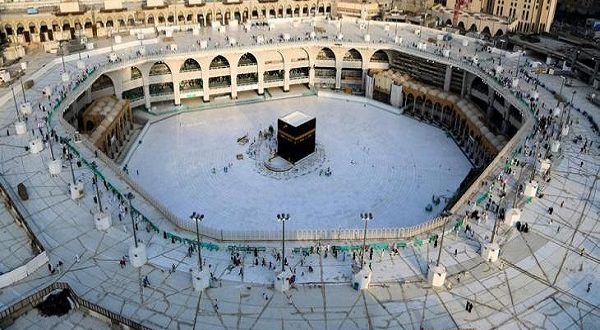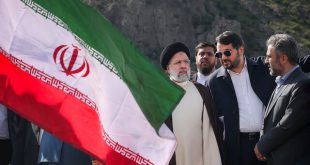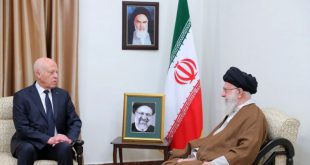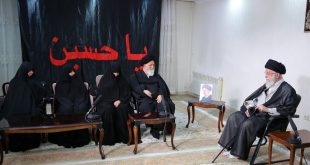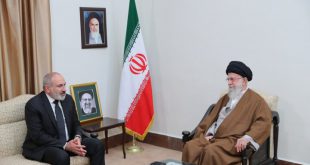| By Leila Yazdani : As the COVID-19 pandemic spread across the planet, nearly all religions have to figure out how to practice their faith without being physically together to celebrate, whether it’s Easter, Passover or Ramadhan. The challenge for all communities is how to foster community and support one another while keeping physical distance. Many faith communities are live-streaming services or sharing pre-recorded sermons.
The religious practices of hundreds of millions of people are undergoing profound changes in response to the COVID-19 pandemic caused by a new coronavirus. At the heart of any religion is community: people gathering together to worship, pray, caring for one another, and eating together. So it seems something antithetical about asking members of faith communities to show their love by keeping away from one another. But many religious leaders have appealed their followers to not only take safety precautions but also to embrace their spirituality to help confront the health, social, and economic challenges ahead, the Conversation mentioned.
It is a difficult and counter-cultural thing for many to do. But, contrary to opposite belief, religious leaders trust the advice of scientists and medical experts that this is the best way to show care for the most vulnerable in the community. Islam, Christianity and Judaism are imposing restrictions to curb the spread of coronavirus infections.
Events to mark important religious festivals cancelled due to coronavirus. Next month, most of the world’s major religions have festivals involving large gatherings of people. Mid-Sha’ban celebration is on 9 April. Islamic holy month of Ramadan begins around 23 April. During the holy month; Ramadan, 1.8 billion Muslims fast from dawn until sundown, and mosque attendances usually peak. Easter is on 12 April, Rama Navami, an important Hindu festival, is on 2 April; while the Sikh festival of Vaisakhi is a few days later.
Patience and the way people deal with events show maturity
Muslim scholars have reminded their followers that the former relationship, between God and those who beseech God, remains constant and consistent — even if it takes different forms in this difficult time. Hujjat-ul-Islam Ali, the Professor of Isfahan Seminary believes that disasters are one of the issues mentioned in the Quran. “Disasters has existed sometimes individually and sometimes socially in all historical periods,” he continued: “Religious culture has taught us that with the advent of a problem, the world will not end and humanity is being tested. Patience and the way people deal with events show maturity.”
Norouzi said to SHAFAQNA that Human knowledge does not emerge without relying on the nature that is the product of God. As the coronavirus has spread worldwide, the scientific approach of physicians must be accepted and respected, because violating these solutions is a violation of God’s laws.
“If doctors tell us to stay out of the community, we need to take this scientific approach seriously and avoid unscientific solutions”, he noticed, “If ever religious and scientific communities need to join together in pursuing wholeness and healing for the world, it’s now”.
Norouzi cited some religious sources that emphasize: “All power belongs to God” and said: “Diseases are cured in the light of God’s will and nothing can be done without God’s permission, but that does not mean religion denies, knowledge and human experience,” he added: “What doctors and health researchers offer as a way to prevent and treat the disease, it is from God, and humans should use them in the name of God”.
Religion does not leave humans alone in adversity
Norouzi Noting that religion and Religious do not leave humans alone in adversity, they are with them in all conditions and give them hope, emphasized that The Prophet of Islam, peace and blessings be upon him, and Imam Ali (AS) did not forget the people in times of war and disease, and they were trying to keep them in the hope. According to him, the elders of Islam knew that if society lost hope in difficult conditions, it would be destroyed, therefore they help people as much as they could. Norouzi emphasized: Nowadays that some people insist on praying, it is because of hope and it implies that God is the cause of everything and cannot find a disease that is not under the control of God.
Muslims avoid large gatherings
Top Islamic scholars in the world have endorsed the closure of Mosques, and cancelled pilgrimages, to avoid large gatherings where the risk of contamination could be high. Friday prayers have already been suspended across the World and as a result of the virus, the Jakarta Post reported.
Top Shia Marja’ the Grand Ayatollah Ali Sistani has urged citizens not to gather in large numbers for prayers, where the risk of contamination could be high. Iraqi officials announced the closure of shrines and religious places in Karbala and Najaf to prevent coronavirus outbreak.
World Health Organisation representatives have hailed the role of religious leaders and the support of Iran’s Supreme Leader in convincing and shaping public opinion about the deadly coronavirus. In Iran, tens of thousands of Mosques are still closed and, authorities have closed key Shia religious sites, such as Imam Ridha (A.S) and Lady Masumeh (S.A) holy shrines and halted Friday prayers in major cities.
Saudi Arabia, which draws millions of Muslims each year, has temporarily suspended them from coming to Mecca for Umrah, a pilgrimage to visit Islam’s holiest sites that can be taken at any time of the year. The extraordinary measure has been followed by other decisions, such as the closure of the holy mosques of Mecca and Medina between the evening Isha prayers and morning Fajr prayers.
In Palestine, Al-Aqsa mosque shut down amid coronavirus outbreak. Prayers suspended after Wakf holds emergency meeting in Jerusalem. In Syria, already stricken by war, the Ummayad Mosque in Damascus closed for the first recorded time in over a thousand years. In Egypt, the most populous Arab country, religious authorities have ordered a two-week closure of mosques and banned mass communal prayers. In Algeria, Muezzins are now encouraging worshippers to pray at home.
Muslims at the Islamic Center of Southern California are asked not to embrace or kiss each other on the cheek, but rather place a hand over their hearts, give a respectful nod or flash a warm smile. Over 375 mosques across the UK have suspended congregations, including traditional Friday prayers, due to the coronavirus pandemic, the Muslim Council of Britain said, AA mentioned. Last week in Australia, many Mosques decided proactively to cancel their normal worship services.
Finding new ways to offer connection
With religious services suspended, Islamic communities are finding new ways to offer connection and comfort. It has been almost five centuries, Spain have not heard the Islamic call to prayer with a human voice. Last Monday, however, video footage of a man reciting the Islamic call to prayer, the adhan, has gone viral on social media, Siasat told.
Muslims in Finland this week performed the community’s first-ever “online” Friday prayer in light of mosques across the country having been closed as part of measures to mitigate the COVID-19 outbreak. An Imam from the Finnish Islamic Community, Ramil Belyaev, led the prayer in a live broadcast on his Facebook page, Daily Sabah told.
Quran recitation is played on loudspeakers in mosques across Mauritania 24 hours a day. The country’s Islamic Affairs Ministry said the move is aimed at seeking Divine Blessings and praying for an end to the pandemic, Iqna reported.
Christianity: Churches closed by Coronavirus
The Church of Jesus Christ of Latter-day Saints has closed several temples and limited or temporarily suspended gatherings in Hong Kong, Mongolia, South Korea, Japan and Seattle. In Bethlehem, doors closed at the Church of the Nativity, considered the birthplace of Jesus, The Guardian reported. In Houston in the US, the world-renowned Pastor Joel Osteen of Lakewood Church, which attracts upwards of 50,000 people, has closed his church, according to Time. Last week in Australia, many churches decided proactively to cancel their normal worship services.
Pope delivered the Angelus prayer via video link
Instead of giving his weekly Sunday greeting at the window in St. Peter’s Square in Rome, Pope Francis delivered the Angelus prayer via video link. “We do this so that the close concentration of people won’t spread the virus,” the Pope said. He used his address to pray for those suffering from the outbreak and for those who are helping them.
Judaism: Jewish synagogues close doors
Almost all synagogues have been closed for more than a week, with many livestreaming services and celebrations. Kosher shops have put social distancing policies in place, and synagogues and other Jewish organisations have stepped up efforts to provide assistance to elderly and vulnerable people. Jewish leaders said that Jewish synagogues close doors for first time in their history.
In a statement, the Council of Hasidic Jews of Quebec said, “In the eyes of the rabbinical authorities in our communities, (Quebec Premier) François Legault’s request to close all places of worship is deemed necessary to ensure the well-being of all Quebecers, including that of our communities”, Montreal reported “In this sense, we act as responsible and united citizens, as we did last week when it was decided to close our cultural centres and our schools.”
 صراط عشق صراط عشق
صراط عشق صراط عشق
